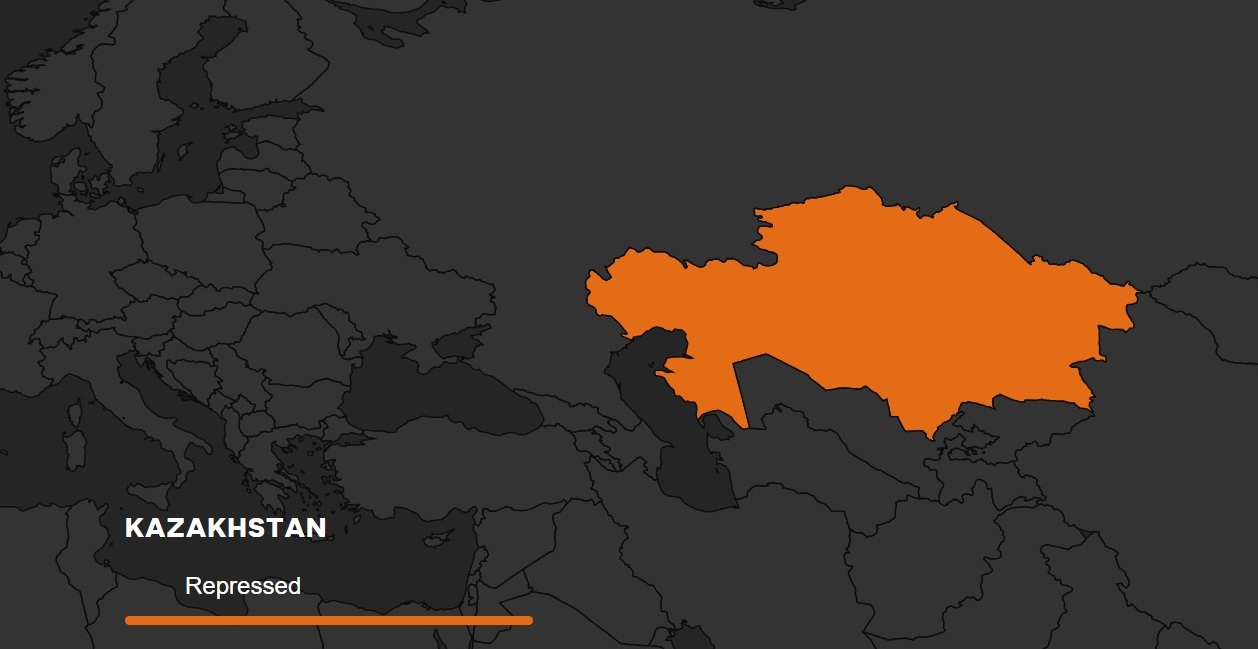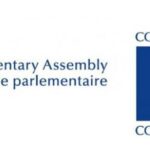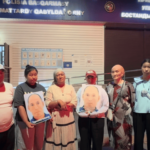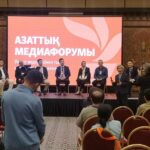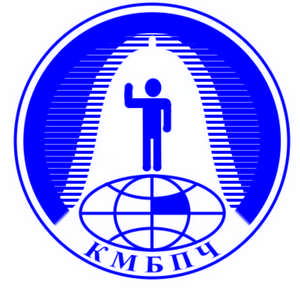The CIVICUS Monitor has released its annual, global report People Power Under Attack (PPUA) 2023, which provides an overview of trends affecting civil society space across the world in 2023. The report draws on updates from CIVICUS Monitor research partners, including updates on the five countries in Central Asia prepared by International Partnership for Human Rights (IPHR) and its partners from the region.
The PPUA documents the continued erosion of civic freedoms in Central Asia in 2023, drawing particular attention to the escalating crackdown on civil society, independent media, and dissent seen in Kyrgyzstan, once viewed as the most democratic country in Central Asia. This crackdown entailed the introduction of restrictive draft NGO and media laws; the blocking of news sites accused of spreading ‘’false’’ information; legal actions aimed at closing down leading independent outlets; and an increasing number of politically motivated cases of prosecution against government critics. Due to these developments, the state of civic space in Kyrgyzstan was re-classified from ‘’obstructed’’ to ‘’repressed’’ (with 40 points on a scale from 0 to 100 where 100 is the best score). Civic space was already previously classified as ‘’repressed’’ in in Kazakhstan (27/100), and as ‘’closed’’ in Tajikistan (12/100), Turkmenistan (8/100) and Uzbekistan (18/100). The CIVICUS Monitor country ratings are based on a methodology that combines several sources of information on the freedoms of association, peaceful assembly and expression and the state’s duty to protect those fundamental freedoms.
The PPUA report covers ‘foreign agent’ initiatives in the region, which were ostensibly introduced to protect national sovereignty but which have far-reaching implications for civil society activity. In Kyrgyzstan, a ‘foreign agent‘ style draft law was submitted to parliament in May 2023 and was progressing at the end of the year. If adopted, the law would require civil society organisations that receive foreign funding and engage in broadly defined ‘political activities’ to register as ‘foreign representatives’, with the risk of suspension of their activities for up to six months without a court decision in the case of non-compliance. Those that do register would be subjected to burdensome reporting obligations and intrusive inspections. In neighbouring Kazakhstan, the government introduced a public record of foreign-funded NGOs in a move clearly aimed at stigmatising such groups.
As further documented in the PPUA, the number of NGOs that have been shut down or pressured into closing significantly increased in Tajikistan in 2023. In the Gorno-Badakhshan Oblast (GBAO), security officials reportedly threatened to bring criminal charges against civil society representatives or their relatives unless they “voluntarily” closed their organisations. As also covered by IPHR and partners as part of their cooperation with the CIVICUS Monitor, in Uzbekistan, many independent human rights NGOs have repeatedly been denied registration, while registered groups continue to face serious restrictions, including in terms of access to foreign grants. In Turkmenistan, not a single independent human rights NGO is registered.
The PPUA highlights the continued use of criminal prosecution as a means of intimidation and suppression of dissent across Central Asia in 2023. Journalists, bloggers, civil society activists and human rights defenders were targeted across the region. In one notable case in Kyrgyzstan, in October 2022, authorities arrested almost 30 journalists, bloggers, human rights activists and other public figures who had spoken out against a land swap with Uzbekistan over the Kempir-Abad water reservoir. A year later, some of the defendants in the case are still in pre-trial detention and the trial is taking place behind closed doors. In Tajikistan and Kazakhstan, extremism charges were repeatedly used against activists, including human rights defender Manuchehr Kholiknazarov and opposition party leader Marat Zhylanbaev. In addition to continuing to imprison activists based in the country, the Turkmenistani authorities pursued the forcible return of outspoken activists based abroad, resulting in the deportation of several activists-bloggers. Turkmenistani authorities also put pressure on activists through their relatives, including children.
The PPUA notes that the few independent media outlets remaining in Central Asia were subjected to ongoing pressure and access to online content was restricted. Draft laws in Kazakhstan and Kyrgyzstan risk resulting in excessive state control over media and online platforms, and new blogging restrictions have been initiated in several countries. In Tajikistan, at least two independent outlets, the New Tajikistan 2 website and Pamir Daily News were banned as ‘extremist’ by court order, and in Kyrgyzstan, a request to close down the independent Kloop portal due to its critical reporting was pending in court as of the end of the year. Extensive internet censorship continued in Turkmenistan, with thousands of websites arbitrarily blocked.
Another serious concern highlighted by the PPUA is the widespread lack of accountability for severe human rights violations related to the suppression of anti-government protests in Central Asia in 2022, including the ‘Bloody January’ events in Kazakhstan, the May 2022 unrest in the GBAO in Tajikistan, and the July 2022 events in the Republic of Karakalpakstan in Uzbekistan. Government measures to investigate allegations of violations and hold those responsible to account have lacked independence, thoroughness and efficiency, resulting in prevailing impunity for the excessive use of force, torture and ill-treatment and other serious human rights abuses.
The CIVICUS Monitor is a global initiative, which tracks, analyses, and rates civic space in 198 countries and territories across the world based on independent civil society information. Its annual PPUA is an important source of information on global civic space trends.
The chapter on Europe and Central Asia in PPUA 2023 is available here
For more information on civic freedoms in Central Asia, see the updates prepared by IPHR and its Central Asian partners for the CIVICUS Monitor:
Kazakhstan (updates prepared by IPHR and Kazakhstan International Bureau for Human Rights and Rule of Law)
Kyrgyzstan (updates prepared by IPHR and Legal Prosperity Foundation)
Tajikistan (updates prepared by IPHR)
Turkmenistan (updates prepared by IPHR and Turkmen Initiative for Human Rights)
Uzbekistan (updates prepared by IPHR and Association for Human Rights in Central Asia)
www.iphronline.org/global-report-documents-erosion-of-civil-society-space-in-central-asia.html


